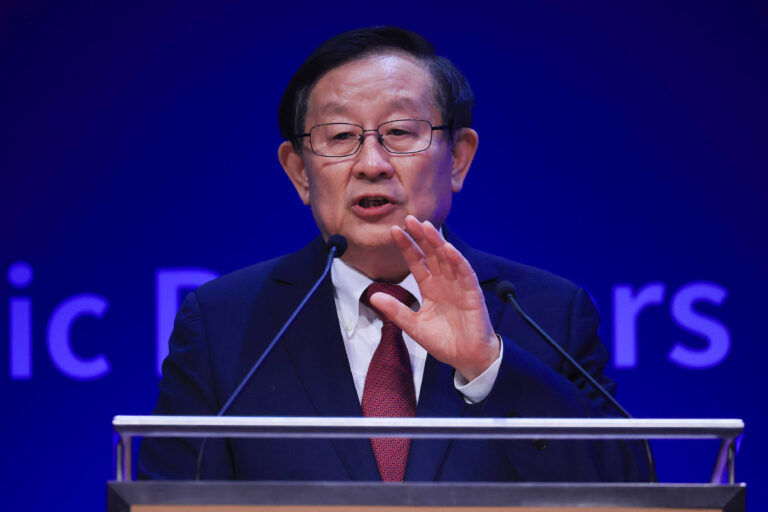Wankang is widely credited with spearheading China’s electric vehicle strategy many years ago.
Bloomberg | Bloomberg | Getty Images
HEFEI, China — Chinese investment in Europe’s electric vehicle industry could be a way forward for both sides amid ongoing trade tensions, a leading figure in China’s electric vehicle strategy said Wednesday.
“I believe that the government [of China and the EU] “The two sides are now looking at how they can combine investment and merchandise trade through negotiations,” said Wan Gang, who is now chairman of the China Association for Science and Technology.
Wan made the remarks through an official English translator during a live-streamed panel at the World Economic Forum’s Summer Davos in Dalian, China. CNBC reached out to China’s foreign ministry and a spokesman for the European Commission but did not immediately receive a response.
China’s commerce ministry said over the weekend it would begin talks with the EU over an EU investigation into the role of subsidies for Chinese-made electric cars. Earlier this month, the EU announced it would increase import tariffs on electric cars.
“Even if they aren’t exporting large amounts of EVs, Chinese companies could try to invest in Europe,” Wan said, adding that such funding could create jobs locally.
Wan became China’s minister of science and technology around 2007 and is known as a leader in the country’s early push for electric vehicles.
He said he had already been working in Germany for about 15 years, including at Audi, when China joined the World Trade Organization in 2001, and had experienced several periods of volatility in oil prices.
Wan added that 2001 was also the year the Chinese government set out its goal of building a “moderately prosperous society”, which meant that in the near future every household would have its own car.
But while fuel-powered vehicles would put pressure on Beijing to ensure a steady supply of gasoline to consumers, they would also increase pollution, Wan predicted at the time.
He argued that China is thinking about its own survival when formulating its electric vehicle strategy, rather than competing with anyone.
The United States also raised tariffs on electric vehicle imports from China this year amid growing criticism that Beijing’s policies unduly favor domestic companies over foreign ones.
Wang said China asked him to start researching electric vehicles more than 20 years ago when he returned from Germany. By around 2010, Chinese cities were facing serious air pollution problems, spurring local efforts to go electric, starting with buses and taxis.
New energy vehicles, a category that includes battery and hybrid cars, accounted for more than a third of new passenger cars sold in China this year, according to data from a local passenger car association.
But Wang said electric vehicle makers need to do more to alleviate drivers’ range anxiety and improve safety on the roads through driver-assistance technologies, such as by enabling vehicles to automatically determine when and where to charge.
He noted that the development of electric vehicles is an “irreversible trend” for the world, and “we must be determined to move forward despite ups and downs.”

